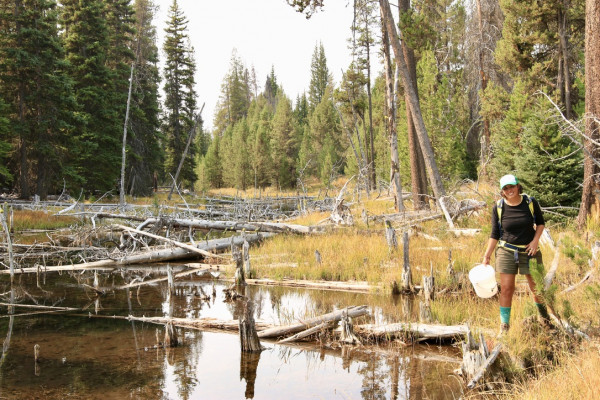The Little Deschutes River is a tributary of the Deschutes River in the central part of the U.S. state of Oregon. It is about 105 miles long, with a drainage basin of 1,020 square miles. It drains a rural area on the east side of the Cascade Range south of Bend. The Little Deschutes is one of three streams in the Deschutes Basin listed as parts of the National Wild and Scenic Rivers System.
The Little Deschutes River is a critical habitat for wild, native fish species, including rainbow trout and bull trout. These fish rely on the river's cool, clear water for survival and are an important part of the ecosystem. However, the Little Deschutes River has faced numerous challenges, including habitat degradation and fragmentation, blockage of migration corridors, poor water quality, past fishery management practices, and the introduction of non-native species - all of which have contributed to the decline of native fish populations.
To help protect and conserve the Little Deschutes River and its wild, native fish species, local conservation groups are working to restore and protect critical habitats, improve water quality, and reduce the impacts of non-native species.
Jodi Wilmoth, the Little Deschutes River Steward for Native Fish Society and a member of our Women for Wild Fish Initiative, has always worked to protect native species, be they fish or frogs. During her tenure as a River Steward, Jodi has been interested in Bull trout and exploring the possibility of whether they currently inhabit the Little Deschutes watershed in Central Oregon.
With the advancement of DNA technology, Jodi has been working on determining their presence utilizing something called eDNA. This cutting-edge technology is being used to find rare and threatened species throughout the world, so Jodi figured it could be used in her own backyard.
What is eDNA? Well, eDNA is short for “environmental DNA” and refers to any DNA that is collected from an environmental sample, rather than directly from an organism. eDNA can be collected for terrestrial animals, fish, amphibians and even microorganisms. It is then sent to a lab which analyzes it for the species of interest. The ability to rapidly and sensitively detect the presence of a target species through eDNA analysis has enabled a wide range of scientific discoveries including presence of rare or endangered fish without the need to locate and capture individual fish. This project is all part of the Rangewide Bull Trout eDNA Project being conducted throughout the pacific Northwest.
By supporting these efforts, we can help ensure the health and revival of the Little Deschutes River and its unique and valuable ecosystem for future generations.
